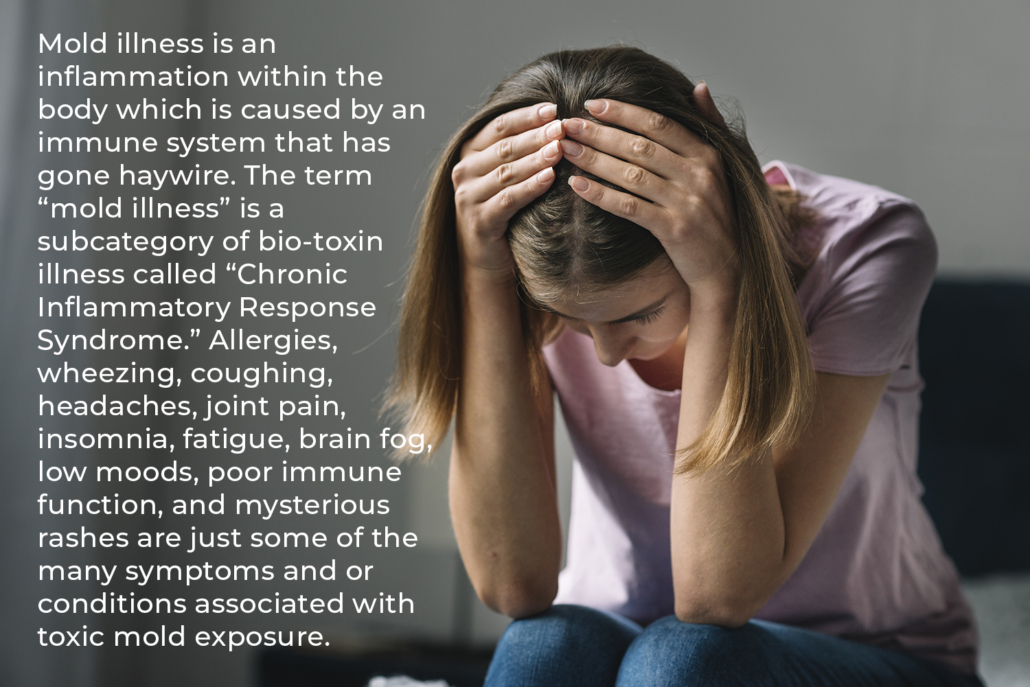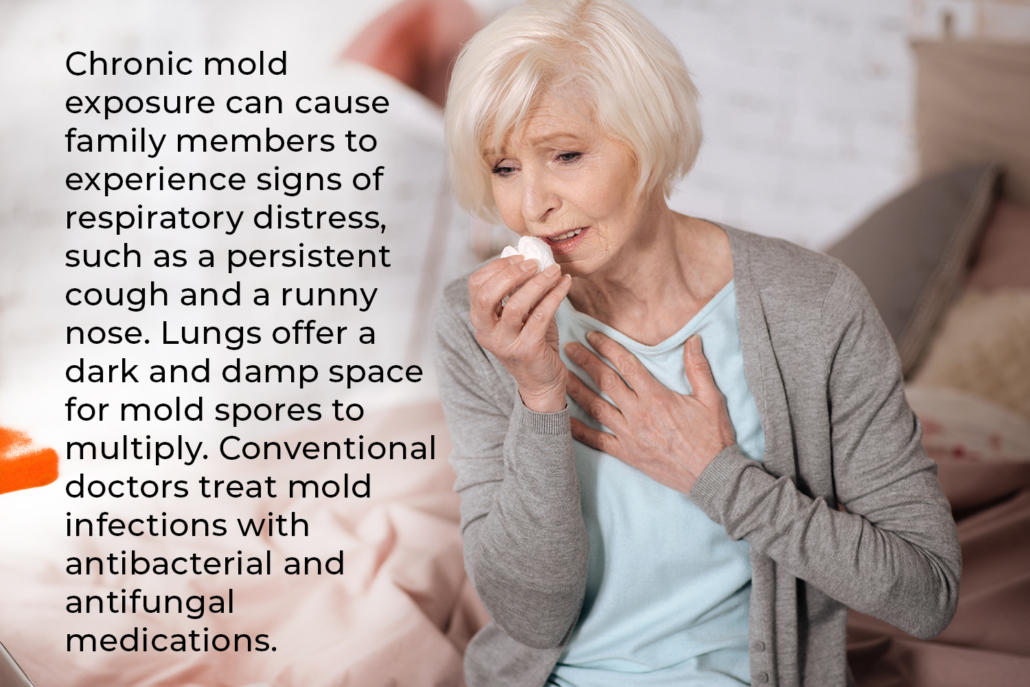Hidden Mold Can Cause Numerous Unwanted Health Conditions
Does your roof leak during heavy rainstorms? Do you get water in your basement after a heavy rainfall? Do you notice any black marks on your walss, ceilings, or home furnishings? Often times these things go unnoticed. Yet, if you do have any of these signs of mold, your home is at risk of developing toxic black mold. Mold thrives in a warm, moist environment and spores readily travel through your home, settling in dark, damp corners.
The spores can multiply rapidly and contaminate the air in your house. Since the spores are microscopic, you won’t be able to see them in the air. Mold often has a musty and stale smell to it, but not always. Mold infestation in the home in your home can cause a host of adverse health conditions that may affect your respiratory system and immune function.

For most people, biotoxins or mold toxins, are removed from the blood by the liver, or attacked by the immune system, broken down, and excreted harmlessly. In people who don’t have the right immune response genes, are immune compromised, have chemical sensitivities, a sluggish or fatty liver, are battling a chronic illness already or are just rundown, biotoxins can remain in the body indefinitely.
If anyone in your family suffers from allergies, one of the first signs of mold growth is an exacerbation in their allergy symptoms. Affected individuals notice an increase in wheezing, coughing, and sneezing, and some highly sensitive individuals may begin to develop a rash. If you notice a musty smell, it’s probably mold causing the flare in your allergies.
Mold spores breed in the dark, damp areas of your home, and your lungs provide the ideal breeding ground where they can multiply as they please.
As a result of mold exposure, the bronchial tubes and alveoli sacs in the lungs become clogged with spores, resulting in a chronic cough that escalates in intensity as the spores multiply in the lungs. Unfortunately, many people write off these symptoms as bronchitis or some other form of mild respiratory disease and choose to forgo seeing a doctor.
Failure to receive the necessary treatment to clear the infection may result in severe scarring of the lungs and respiratory failure.

In some cases, it may take weeks for the lungs to regain their normal function. However, if left untreated, the disease will spread to other parts of the body and may manifest into severe health conditions. One of the unexpected symptoms of mold exposure is a drop in fertility in both men and women. Mold infection can cause a hormonal imbalance that disrupts normal hormone production. Another unexpected condition, is a compromised immune system. Immune function reduces as the body tries to fight off the infection, resulting in the disease spreading to other biological systems.
Do you or a family suffer with constant fatigue? Chronic fatigue, another common symptom of occurs when mold infection begins to get out of control.
Toxic mold depletes melatonin levels and may lead to poor sleep.
Excess toxic mold suppresses natural pain blocking endorphins contributing to chronic diffuse achy pain. Chronic mold exposure can cause high levels of inflammatory hormones, known as cytokines which can trigger flu-like symptoms: headaches, muscle aches, fatigue, unstable temperature, difficulty concentrating and more.
Excessive cytokine levels can damage leptin receptors in the hypothalamus. Leptin is a hormone predominantly made by adipose cells and enterocytes in the small intestine that helps to regulate energy balance by inhibiting hunger, which in turn diminishes fat storage in adipocytes. Decreased leptin receptors can lead to increased appetite and weight gain.
As the spores spread, you start to breathe in more of the mycotoxins. These toxins affect neurotransmitter creation and function in the brain. Brain fog, low moods, or irritability may be due to chronic mold exposure.
Toxic mold may cause you to develop a rash that consists of tiny red bumps where the mycotoxins inflame the pores and skin cells in the surrounding area. In some cases, a rash may not develop, but the affected individual notices intense itching sensations of their skin. Other symptoms of skin irritation include a tingling feeling, as well as numbness in the affected area.
You can order the Mycotoxin Test HERE (normally $497)
Save $100 when you use the code: MOLD2023
Includes test kit, free shipping, free return shipping, interpretation, report, and specific written recommendations from Dr. Murphree – *limited time offer $397
This is a urine based test. Simply catch your first morning urine in a test cup. Fill out the paperwork. Put sample in the pre paid mailer and drop off at your local UPS or call for free pick up M-Th.















